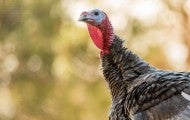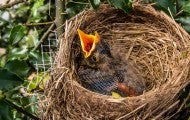Today, veterinarians and 18 organizations, led by the Humane Society of the United States, submitted a petition to the Illinois Department of Natural Resources requesting that the agency initiate rulemaking to prohibit cruel, unnecessary wildlife killing contests in the state. At least 20 killing...
For wildlife on a beautiful 32-acre property in Mount Airy, Maryland, life is sweeter—and safer—because of the pledge landowners Jennifer Bevan-Dangel and Andrew Dangel made to follow the Humane Stewardship Alliance’s humane stewardship principles in managing their land. Lands of all sizes can be...
It began, almost certainly, in a bat. Then, just as SARS jumped to civets from bats, the virus that causes COVID-19 passed to another mammal, possibly a pangolin. Finally, late last year, the new coronavirus most likely jumped to humans in a wildlife market in Wuhan, China, a densely populated city...
In March, as people struggled to understand how the precursor of the virus that causes COVID-19 emerged from horseshoe bats in southern China and reached humans in the central city of Wuhan, Humane Society International policy specialist Peter Li fielded one question again and again: “Why do Chinese...




